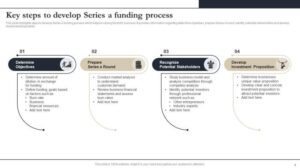Business security audits encompass a critical evaluation of a company’s security measures, ensuring that vulnerabilities are identified and addressed effectively. In today’s fast-paced digital landscape, these audits play a vital role in safeguarding assets, maintaining compliance, and fostering trust with clients and stakeholders. By regularly assessing security protocols, businesses not only protect themselves from potential threats but also enhance their overall operational efficiency.
From physical security assessments to IT compliance checks, understanding the various types of audits empowers organizations to tailor their security strategies. This comprehensive approach not only mitigates risks but also highlights the importance of innovation and collaboration in creating a resilient security culture.
Business Security Audits Overview
Business security audits are comprehensive evaluations that assess a company’s security policies, processes, and controls. These audits help identify vulnerabilities and provide a roadmap for improving overall security posture. Conducting regular security audits is essential for businesses of all sizes, as it not only protects sensitive data but also ensures compliance with legal and regulatory requirements.
Importance of Regular Security Audits
Regular security audits play a crucial role in maintaining the integrity and confidentiality of business information. They help organizations stay ahead of potential threats and adapt to emerging risks. By identifying weaknesses before they can be exploited, companies can mitigate risks and avoid costly breaches. Furthermore, these audits foster a culture of security awareness among employees, ultimately enhancing the organization’s resilience against cyber threats.
Types of Security Audits
There are various types of security audits, each focusing on different aspects of an organization’s security framework. They include:
- Physical Security Audits: Assess the physical measures in place to protect the organization’s assets, such as access controls and surveillance systems.
- IT Security Audits: Evaluate information technology systems for vulnerabilities, including network security, application security, and data protection.
- Compliance Audits: Ensure that a business complies with relevant laws and regulations, such as GDPR or HIPAA, and industry standards.
Steps for Conducting a Business Security Audit
Conducting an effective business security audit involves several essential steps that ensure a thorough evaluation of security practices. Following a structured process helps organizations identify vulnerabilities and implement improvements efficiently.
Essential Steps for an Effective Audit
The process of conducting a security audit can be broken down into key steps:
- Define the Scope: Clearly Artikel what areas will be audited, including physical locations and IT systems.
- Gather Documentation: Collect existing security policies, procedures, and previous audit reports for review.
- Conduct Risk Assessment: Identify potential risks and threats to the organization’s security posture.
- Perform Security Testing: Execute tests such as vulnerability assessments and penetration testing to identify weaknesses.
- Analyze Findings: Evaluate the data collected during the audit to pinpoint areas for improvement.
- Prepare a Report: Summarize the findings and provide actionable recommendations for enhancing security.
Assessing Current Security Policies
Assessing current security policies and procedures is a critical part of the audit process. It involves a review of existing documentation and practices to determine their effectiveness. Organizations should evaluate:
- Compliance with established security standards.
- Employee awareness of security policies.
- Frequency and results of previous audits.
Checklist for Identifying Vulnerabilities

Creating a checklist can streamline the vulnerability identification process during a security audit. Key items to include are:
- Access control measures for sensitive information.
- Employee training and awareness programs.
- Incident response plans and their effectiveness.
- Data encryption methods in use.
Business Innovation and Security Audits
Innovation in technology significantly impacts business security audit processes. As companies adopt new technologies, they must also evolve their security practices to address new vulnerabilities that arise.
Impact of Technology on Security Audits
Emerging technologies such as artificial intelligence and machine learning enhance security audit processes by automating certain assessments and providing deeper insights into potential risks. Businesses that leverage these innovations can better anticipate threats and formulate proactive strategies.
Innovative Practices to Enhance Audits
Some innovative practices that enhance the effectiveness of security audits include:
- Utilizing automated tools for continuous monitoring of security systems.
- Implementing threat intelligence platforms to stay informed of emerging risks.
- Adopting cloud-based audit solutions for greater flexibility and scalability.
Examples of Improved Security through Innovation
Numerous businesses have successfully improved their security posture through innovative auditing techniques. For instance, a financial institution implemented machine learning algorithms to analyze transaction data, significantly reducing fraudulent activities. Another tech firm adopted a cloud-based security audit platform that allowed for real-time monitoring and rapid response to security threats.
International Business Security Considerations
International businesses face unique security challenges that require tailored approaches to security audits. Factors such as differing regulations and cultural attitudes towards security can complicate the auditing process.
Unique Security Challenges
Companies operating globally must navigate various security landscapes, including differing legal requirements and potential geopolitical threats. For example, data protection laws can vary widely between countries, necessitating careful consideration during audits.
Adapting Audits for Global Operations
To effectively adapt security audits for global operations, organizations should:
- Conduct a thorough analysis of local regulations applicable to security.
- Incorporate cultural considerations into security policies.
- Utilize local expertise to identify specific regional risks.
Comparing Security Regulations
Security regulations across different countries can significantly impact security audits. For instance, the European Union’s GDPR imposes stringent requirements for data protection, while regulations in the United States may focus more on industry-specific guidelines. Understanding these differences is crucial for organizations conducting audits in multiple jurisdictions.
The Role of Business Management in Security Audits
Business management plays a pivotal role in overseeing security audits and ensuring that findings are acted upon effectively. Strong leadership can foster a culture of security within the organization and drive compliance with recommended practices.
Overseeing Security Audits
Management is responsible for setting the tone for security within the organization. This includes:
- Allocating resources for security initiatives and audits.
- Ensuring that audit findings are addressed promptly.
- Promoting security awareness through training and communication.
Influencing Security Culture
Leadership’s influence on security culture cannot be overstated. By prioritizing security and demonstrating commitment through actions, management can encourage employees to adopt security best practices in their daily operations.
Supporting Audit Findings
To support audit findings and recommendations, management should:
- Engage in open discussions about security risks and mitigation strategies.
- Develop a clear plan for implementing recommendations.
- Monitor progress and provide feedback on security initiatives.
Marketing Direct and Security Audits
Marketing practices can play a vital role in supporting security audits by communicating the organization’s commitment to security to clients and stakeholders.
Supporting Security Audits through Marketing
Integrating security messaging into marketing strategies can enhance trust and credibility. Organizations can:
- Highlight security measures in marketing materials.
- Utilize case studies demonstrating successful security enhancements.
- Engage with clients on security topics during presentations and discussions.
Communicating Audit Results
Effectively communicating security audit results to clients and stakeholders builds confidence. Transparency regarding security practices and vulnerabilities can enhance client relationships.
Integrating Security Messaging
When integrating security messaging into marketing strategies, businesses should aim for consistency across all platforms. This could include:
- Using social media to share updates on security initiatives.
- Incorporating security features into product descriptions.
- Providing educational content on security topics relevant to the audience.
Business Networking and Security Awareness
Networking plays a crucial role in enhancing security audits by fostering partnerships that strengthen security measures across organizations.
Importance of Networking
Building relationships with other businesses can lead to shared insights and best practices in security. Networking events focused on security are invaluable for exchanging ideas and resources.
Building Partnerships
Strategic partnerships can enhance security measures through collaborative efforts. Organizations can:
- Engage in joint training sessions with other companies.
- Participate in security forums and workshops.
- Share threat intelligence to improve collective security posture.
Examples of Networking Events

Numerous networking events focus on business security, such as conferences, seminars, and industry meetups. Participating in these events can provide organizations with the resources needed to enhance their security audits.
Risk Management and Security Audits
Risk management is intrinsically linked to security audits, as identifying and assessing risks is a fundamental aspect of the auditing process.
Relationship between Risk Management and Audits
Security audits provide a framework for organizations to identify risks and implement appropriate controls. Regular audits help ensure that risk management strategies remain effective and relevant.
Assessing Risk during Audits
During the audit process, organizations can assess risk by:
- Evaluating potential threats and vulnerabilities.
- Reviewing past incidents to identify trends.
- Considering the impact of identified risks on business operations.
Best Practices for Mitigating Risks
To mitigate risks identified in security audits, organizations should:
- Implement layered security measures.
- Regularly update security policies based on audit findings.
- Conduct ongoing training and awareness programs for employees.
Sales Management and Security Protocols
Sales teams play a vital role in implementing security protocols during audits to protect sensitive information and maintain client trust.
Implementing Security Protocols
Sales teams should be trained on security protocols to ensure compliance during audits. This includes:
- Understanding data handling procedures.
- Adhering to confidentiality agreements.
- Recognizing potential security threats during client interactions.
Training Sales Personnel
Investing in training for sales personnel on security best practices is essential. Effective training programs should cover:
- Identification of security risks specific to sales processes.
- Strategies for safeguarding client information.
- Proper response protocols in case of a security incident.
Impact of Security Breaches
Security breaches can severely impact sales performance. Companies that experience data breaches often face reputational damage, loss of client trust, and financial repercussions.
Workplace Safety and Security Audits
Workplace safety is closely tied to security audits, as both focus on creating a safe and secure environment for employees.
Connection between Workplace Safety and Audits
Security audits should include evaluations of workplace safety measures to ensure that employees are protected from both physical and cybersecurity threats.
Safety Elements in Security Audits
Key safety elements to include in a comprehensive security audit are:
- Emergency response plans and their effectiveness.
- Access controls to secure areas of the workplace.
- Training programs for employees on safety protocols.
The Role of Employee Training
Employee training plays a pivotal role in enhancing workplace safety measures. Regular training ensures that employees are aware of safety protocols and can respond effectively in emergencies.
Business Productivity and Security Audits
Security audits can lead to improved business productivity by identifying inefficiencies and streamlining processes.
Improving Business Productivity
By addressing security vulnerabilities, organizations can minimize disruptions and enhance operational efficiency. A secure environment fosters a culture of productivity and innovation.
Effectiveness of Streamlined Processes
Post-audit improvements often lead to streamlined processes that allow employees to work more effectively. This can result in time savings and increased output.
Success Stories
Many businesses have reported increased productivity after implementing security enhancements. For example, a retail chain improved its inventory management through better security measures, resulting in reduced losses and improved operational efficiency.
Strategic Planning and Security Audits
Integrating security audits into strategic planning processes is crucial for aligning security measures with business goals.
Integrating Security into Strategic Planning
Organizations should ensure that security audits inform strategic planning by:
- Identifying key areas for improvement based on audit findings.
- Aligning security objectives with overall business goals.
- Allocating resources effectively for security initiatives.
Key Areas for Improvement
Audit findings can reveal critical areas for strategic improvement, such as:
- Enhancing data protection measures.
- Strengthening physical security infrastructure.
- Improving incident response strategies.
Frameworks for Aligning Security Strategy
Developing frameworks that align security strategy with business goals is essential. Organizations can utilize models that incorporate risk assessment, resource allocation, and continuous improvement to ensure security remains a priority in strategic planning.
Team Building and Security Audits
The dynamics of a team significantly impact the effectiveness of conducting security audits. Collaborative efforts lead to more comprehensive evaluations.
Impact of Team Dynamics
A cohesive team can approach audits with diverse perspectives, leading to more thorough assessments. Team members should communicate openly and share insights to identify vulnerabilities effectively.
Strategies for Collaboration
To foster collaboration during the audit process, organizations should:
- Encourage participation from various departments.
- Facilitate regular meetings to discuss audit progress.
- Recognize team contributions and celebrate successes.
Successful Team Experiences
Teams that have effectively conducted security audits often share experiences that highlight the importance of collaboration. For instance, cross-departmental audits yield more comprehensive insights, leading to better security practices.
Venture Capital and Security Considerations
Security audits have a significant impact on venture capital investment decisions. Investors increasingly prioritize security measures when evaluating potential investments.
Impact on Investment Decisions
Investors are looking for businesses that demonstrate strong security practices. A thorough security audit can provide assurance that the organization is managing risks effectively.
Expectations of Investors
When considering investments, venture capitalists expect startups to have:
- Robust security protocols in place to protect sensitive data.
- Clear plans for handling potential security incidents.
- Compliance with relevant regulations and standards.
Preparing Startups for Security Audits
Startups seeking funding should prepare for security audits by:
- Developing comprehensive security policies and procedures.
- Conducting preliminary audits to identify and address vulnerabilities.
- Demonstrating a commitment to ongoing security improvements.
Epilogue
In summary, conducting business security audits is not just a regulatory requirement; it’s a strategic advantage that enhances a company’s resilience and adaptability in a rapidly evolving environment. By embracing innovative practices and fostering a culture of security awareness, businesses can position themselves for success while effectively managing risks. Ultimately, prioritizing security audits will lead to greater trust and improved productivity across all aspects of an organization.
Commonly Asked Questions
What is a business security audit?
A business security audit is a comprehensive evaluation of a company’s security measures to identify vulnerabilities and ensure protection against potential threats.
How often should businesses conduct security audits?
It’s recommended that businesses conduct security audits at least annually, or more frequently if there are significant changes in operations or technology.
Who should perform a business security audit?
Ideally, a qualified third-party security professional or internal audit team with expertise in security assessments should conduct the audit.
What are the main benefits of conducting security audits?
Security audits help identify vulnerabilities, ensure compliance with regulations, enhance security culture, and improve operational efficiency.
Can small businesses benefit from security audits?
Absolutely! Small businesses can significantly benefit from security audits by protecting their assets and establishing trust with clients.



